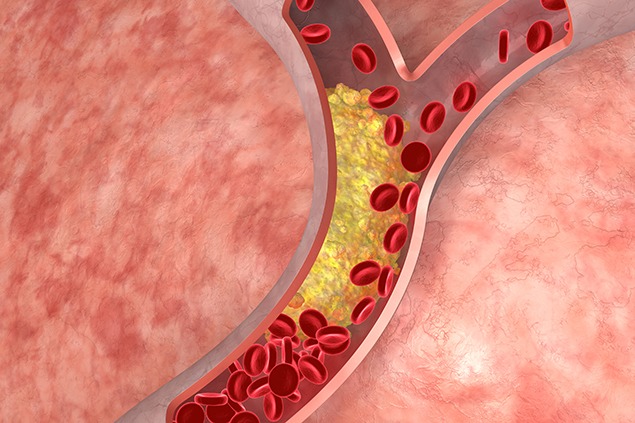Cholesterol Unmasked – The Vital Life Force Turned Villain by Modern Lifestyles
The Cholesterol Conundrum: Friend, Foe, or Just Seriously Misunderstood? A…
The Cholesterol Conundrum: Friend, Foe, or Just Seriously Misunderstood? A Bodybuilder’s Guide for the Over-50s
Introduction
Alright, mates, let’s have a natter about cholesterol. I’ll admit, when I first heard the word, I pictured some sneaky gremlin clogging up my arteries, ready to ruin my day—or worse. Doctors bang on about it, don’t they? “Watch your cholesterol!” they say, wagging a finger like I’ve been naughty with the bacon butties. And for years, I bought it—cholesterol was the bad guy, something to dodge like a dodgy squat rack. But here’s the kicker, especially for us over-50 bodybuilders and fitness buffs: it’s not that simple. Cholesterol’s a bit of a puzzle, and I’ve been scratching my head trying to figure it out.
See, as someone who’s been lifting weights since my hairline was less of a retreat, I’ve learned cholesterol isn’t just lurking there to sabotage us. It’s actually vital—like, can’t-live-without-it vital. Yet, too much of the wrong kind can spell trouble, especially for our ticker. And for us lot who love our eggs, steak, and full-fat cheese to fuel those gains, it’s a real head-scratcher. Are we trading long-term health for a bit of muscle? That’s the conundrum I’ve been wrestling with, and today, I’m spilling the beans—science, stories, and all—to help us navigate this lipid labyrinth. Let’s crack on!
Cholesterol’s Good Side: More Than Meets the Eye
Before we get to the scary stuff, let’s give cholesterol a fair shout. Back in my 40s, I’d have laughed if you told me it’s in every cell of my body, doing good work. But it’s true—it’s like the unsung hero of the fitness world. Picture your cells as tiny houses in a bustling village. Cholesterol’s the glue and bricks keeping those walls sturdy yet bendy, so they don’t collapse when you’re pumping iron or chasing the grandkids. Without it, my muscles wouldn’t recover half as well after a heavy session—something I’ve felt first-hand when I’m knackered post-workout.
Then there’s hormones. Oh, testosterone, you beautiful beast—I’ve relied on you for years to keep these biceps from shrinking. Cholesterol’s the raw material for it, and for oestrogen, cortisol, and even aldosterone, which keeps my blood pressure from going haywire after too much salty post-gym grub. I remember hitting a plateau in my 50s, feeling flat, and wondering if my diet was off. Turns out, cutting fats too much was starving my hormone factory—lesson learned!
And get this: cholesterol helps make vitamin D when I’m out soaking up the sun (a rare treat in the UK, mind you). That’s huge for keeping my bones solid and my immune system firing—crucial when you’re over 50 and every cold feels like a personal attack. It also plays a role in digesting fats, breaking them down so I can actually use that avocado or salmon to power my lifts. Plus, my brain’s chock-full of it—keeps me sharp for planning workouts or remembering where I parked after a gym session. So yeah, cholesterol’s not the villain I thought—it’s more like a mate who’s got my back.
The Dark Side: When Cholesterol Goes Rogue
But here’s where it gets dicey. Too much of the wrong cholesterol can turn that mate into a bit of a troublemaker. Enter LDL—low-density lipoprotein, or the “bad” cholesterol. It’s like the delivery van dropping cholesterol off around the body. Handy, right? Except when there’s too much, it starts dumping it in my arteries, building plaques that narrow them up—atherosclerosis, they call it. I’ve had mates keel over from heart attacks, and it’s scared the life out of me. If a plaque bursts, it’s clot city—hello, heart attack or stroke. Not exactly the legacy I want after years of deadlifts.
Then there’s HDL—high-density lipoprotein, the “good” cholesterol. Think of it as the clean-up crew, scooping up excess LDL and carting it back to the liver to get rid of. More HDL, less risk—simple, but not the whole story. I got my levels checked last year, and my doc said it’s not just about how much LDL or HDL I’ve got, but the size of those LDL bits and how well HDL’s doing its job. Smaller LDL particles are sneakier at gunking up arteries, and if HDL’s slacking, it’s not much help. Add in triglycerides—another fat that spikes if I overdo the carbs—and it’s a balancing act. Over 50, with my family’s dodgy heart history, this stuff keeps me up at night.
Finding the Balance: It’s Not Black and White
Here’s where I had an “aha” moment. It’s not about banning cholesterol or drowning in kale (though I tried that once—grim). It’s about balance. My mate Dave, a fellow lifter, swore his high LDL was fine because his HDL was through the roof. Turns out, the ratio matters more than total numbers—my doc likes the total-to-HDL ratio as a clue to what’s brewing. Triglycerides crept up on me after too many post-workout beers, so I’ve learned it’s not just fats but sugars messing with the mix. For us bodybuilders, it’s a tightrope—enough cholesterol for gains, not so much it’s a heart hazard.
Managing Cholesterol: My Kitchen and Gym Playbook
So, how do I keep this beast in check? Diet’s where I’ve had some fun—and flops. Saturated fats, like in my beloved steak or butter, can nudge LDL up. I used to scoff at lean cuts, thinking, “Where’s the flavour?” But moderation’s key—I still enjoy a ribeye, just not every night. Trans fats? Those nasty buggers in fried junk and dodgy margarine? Out the door—they tank HDL and spike LDL. I once ate a dodgy takeaway and felt my arteries whimper.
Unsaturated fats are my new pals—olive oil on my veg, avocados smashed on toast, nuts for a snack. They nudge LDL down and HDL up, and omega-3s from salmon or walnuts calm inflammation after a brutal session. Eggs got me paranoid years back—cholesterol bombs, right? But turns out, for most of us, they don’t hit blood levels hard. I’m no “hyper-responder,” so I’m back to my three-egg omelettes, grinning like a kid. Fibre’s a hero too—oats, beans, apples—they soak up cholesterol like a sponge. I choked down porridge at first, but with a bit of honey, it’s a winner.
Exercise? Oh, I love this bit. A good 150 minutes of cardio a week—brisk walks, a spin on the bike—keeps LDL low and HDL high. Strength training’s my jam, and it helps too, keeping my body composition in line. Quitting smoking was a battle—I puffed away in my 30s, thinking it was cool. Dropping it boosted my HDL and my lung power for lifts. Weight’s a factor—carrying extra pounds ups the bad stuff, so I watch it, even if cutting means fewer chippy runs.
Over-50 Bodybuilding: My Special Tweaks
At 50-plus, it’s personal. I need more calories and protein than my sedentary mates—eggs, meat, dairy—but I balance them with greens, grains, and fish. Omega-3 supplements? Tried ‘em after a knee flare-up, and they’re a godsend for inflammation and heart health. I get my cholesterol checked yearly now—last time, my LDL was a tad high, so I tweaked my diet. Knowing my numbers keeps me sane. Genetics play a role too—Dad had a dodgy ticker—so I’m proactive, not paranoid.
Plate Pairings and Pro Tips
If I’m having steak, I pile on veg—30-40% of my plate’s colorful stuff like broccoli or peppers. Whole grains like quinoa or brown rice take up 20-25%, lean proteins like chicken or lentils another chunk, and healthy fats—avocado or a drizzle of olive oil—round it out. No one-size-fits-all here—my mate swears by plant sterols, but I stick to food over pills unless my doc says otherwise. Speaking of, a chat with a dietitian sorted my head out—personalized advice beats guesswork.
Wrapping Up: From Foe to Friend
So, cholesterol’s not the monster under the bed. It’s a complex bugger—essential, tricky, but manageable. I’ve gone from fearing it to respecting it, balancing my love for lifting with keeping my heart happy. Eat smart, move plenty, check your levels, and chat to the pros. At 50-plus, I’m not slowing down—I’m thriving, creaky knees and all. How do you handle your cholesterol? Drop me a line—I’d love to swap war stories!
Disclaimer: This is just my take—no supplement endorsements here. Chat to a pro before big health moves.







